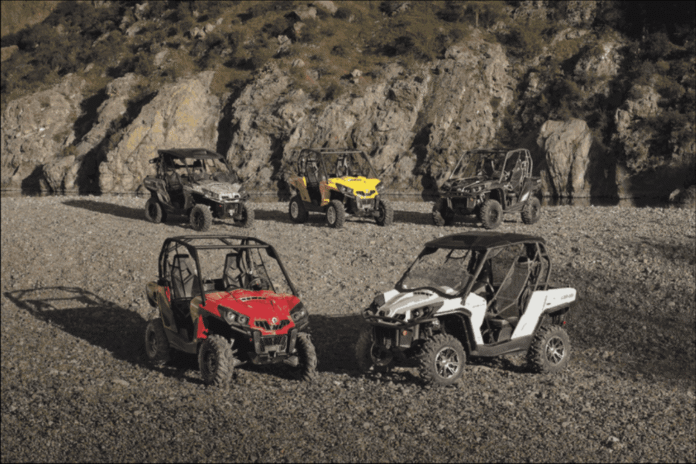Floridians love the freedom of a side‑by‑side (UTV), but the rules for putting one on pavement are anything but simple. If you’ve ever typed “can you register a side by side in Florida” into a search bar, you’re not alone. This guide breaks down what’s legal, what isn’t, and the smartest paths riders use to stay compliant—without draining your wallet or your patience.
Quick heads‑up if you’re also comparing state options: some owners explore registering their vehicles in states with more flexible rules. If you’re considering that route, the team at 1 Dollar Montana can explain your options and typical timelines.
Florida’s Rules in Plain English
Before you ask again—can you register a side by side in Florida—know that Florida generally classifies side‑by‑sides as off‑highway vehicles (OHVs). That means they’re not built to federal on‑road standards like cars or motorcycles. In practice, this puts most UTVs in the “not street‑legal” bucket statewide. There are narrow exceptions for specific government or utility use, and counties can set limited allowances for crossing roads or short connectors.
What You Can Usually Do
• Ride on designated OHV trails and private property with permission.
• Cross a public road where signage allows.
• Use purpose‑built connectors to reach a trailhead if your county permits it.
What You Usually Can’t Do
• Cruise city streets, highways, or neighborhood roads like a car.
• Assume bolt‑on parts alone (blinkers, mirrors, horn) will make the machine on‑road legal.
• Skip safety and tax obligations (titles, VIN verification, sales/use tax) where applicable.
How Titles, Tags, and OHV Decals Work in Florida
Florida may issue a title for your UTV, but a title is not a license to operate it on public streets. You might also see OHV registration or decals for trail systems—again, that’s not the same as a street plate. When people ask, “Can you make a UTV street legal in Florida?” they often mean “can I get a standard metal plate and drive anywhere a car can?” The short answer: not under normal circumstances.
Make Your UTV Safer (Even If You Stay Off‑Road)
Whether or not you plan on pavement, it’s smart to upgrade safety. Consider a compliant helmet policy for riders, a quality windshield, signal kit, mirrors, DOT‑rated tires, and a fire extinguisher mount. These upgrades won’t magically answer “can you register a side by side in Florida,” but they do make trail days safer and may help if your county allows limited connectors.
Benefits of Registering and Making a Side‑by‑Side Street‑Legal in Montana
Some owners form a Montana LLC to title and register their side‑by‑side there. Reasons vary by rider, but common benefits include:
• On‑road usability where permitted, turning your UTV into an errands‑and‑adventure machine.
• Simplified equipment checklists relative to many states, when paired with local compliance.
• Streamlined paperwork handled by specialized service providers.
• Potentially higher resale appeal when a machine is titled and street‑capable in a friendly jurisdiction.
If you’re exploring that path, work with experienced professionals. For a straightforward starting point, many riders look to
Practical Paths Florida Riders Actually Use
1) Keep It Off‑Road and Legal
Stay on trails and private land, follow OHV rules, and use a trailer for transport.
2) Limited Local Allowances
A handful of counties experiment with short on‑road connectors or specific roads posted for OHV access. Rules change, and signage matters—so always check county ordinances before wheels hit pavement.
3) Out‑of‑State Registration (Know the Caveats)
Some owners register where laws are friendlier, then use the vehicle while traveling or relocating. Always respect Florida’s operation rules when you’re in the state. Registration elsewhere doesn’t override Florida’s restrictions.
Buying, Insuring, and Transporting Smart
Purchase Tips
Choose reputable dealers, keep your bill of sale, confirm the VIN is clean, and budget for taxes and any OHV fees. If future on‑road use in another state is on your radar, prioritize models with robust electrical systems for lighting upgrades.
Insurance Basics
UTV insurance is a good idea even off‑road. Ask about liability, comprehensive, collision, and accessories coverage. If you pursue Montana registration, verify your policy follows you.
Trailering & Transport
Use an adequate trailer with proper tie‑downs, brake lights, and a weight rating. Keep copies of your title/registration and proof of insurance when you travel, especially across state lines.
Frequently Asked Questions
Is there any scenario where a Florida plate is possible?
A traditional Florida passenger plate on a UTV is rare and usually limited to special‑purpose exemptions or unique conversions that meet road‑vehicle standards—an expensive, complex path.
If I add turn signals and mirrors, does that make it street‑legal?
Those are helpful for safety, but don’t transform an OHV into a road vehicle under statewide rules.
Will out‑of‑state registration let me drive it on Florida streets like a car?
No. You must follow Florida’s operation rules when in Florida. Out‑of‑state paperwork is not a free pass to ignore local laws.
The Bottom Line
By now, you can confidently answer the question, “Can you register a side by side in Florida.” For most riders, the practical approach is to enjoy your UTV off‑road in Florida and consider a street‑legal option in a more permissive state if that fits your plans. If Montana’s framework sounds like the right fit for you, connect with 1 Dollar Montana for knowledgeable support.
